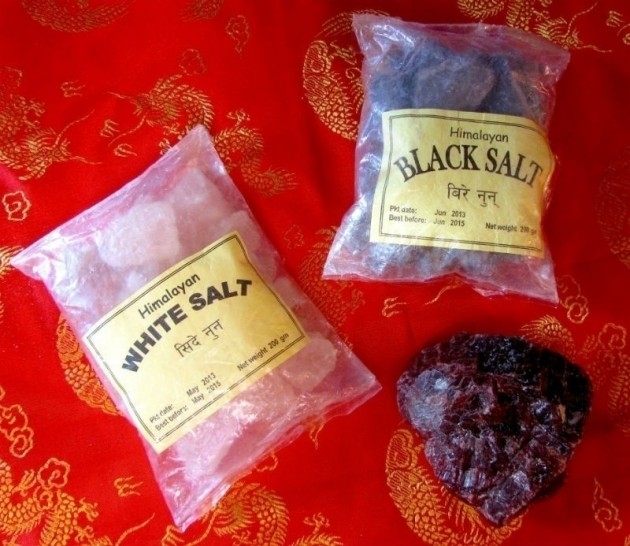- Metabolic Syndrome (lnsulin Resistance and Hyperinsulinemia)
- Type II Diabetes
- Reactive Hypoglycemia.
Metabolic Syndrome Definition:
Metabolic Syndrome describes a cluster of two or more related health problems. Central to the syndrome is insulin resistance, the inability to efficiently use insulin to help burn blood sugar. It is often accompanied by abdominal obesity.
Here's how it develops: The more refined carbohydrates you consume, the faster your blood sugar rises after a meal. In response, your body pumps out large amounts of insulin to help move that blood sugar into cells. But insulin (a powerful hormone) also promotes fat storage, increased blood pressure and elevated cholesterol and triglyceride levels.
Approximately 55% of Americans are overweight, a sign of metabolic syndrome. In addition, 25% of thin people have insulin resistance, the cornerstone of metabolic syndrome. Based on these numbers, more that 65% of American adults either have or are at risk of metabolic syndrome.
All of this blood sugar and insulin generates large numbers of hazardous free radicals, which age the body and
set the stage for heart disease, cancer, Alzheimer's and other diseases.
How is Metabolic Syndrome Diagnosed?
There are no well-accepted criteria for diagnosing the metabolic syndrome. The criteria proposed by the National Cholesterol Education Program(NCEP) Adult Treatment Panel III(ATP III), with minor modifications, are currently recommended and widely used.
The American Heart Association and the Nation Heart, Lung, and Blood Institute recommend that the metabolic syndrome be identified as the presence of three or more of these components:
- Elevated waist circumference:
Men - Equal to or greater than 40 inches (102 cm) Women - Equal to or greater than 35 inches (88 cm)
- Elevated triglycerides:
Equal to or greater than 150 mg/dL
- Reduced HDL ("good") cholesterol:
Men - Less than 40 mg/dL Women - Less than 50 mg/dL
- Elevated blood pressure:
Equal to or greater than 130/85 mm Hg
- Elevated fasting glucose level
Equal to or greater than 100 mg/dL
Ideal Laboratory Indices
- Fasting Insulin 0-15 mcIU/ml
- Fasting Glucose 65-85 mg/dl
- Fasting Triglycerides 80-115 mg/dl
- Fasting Cholesterol 100-180 mg/dl
- 2-Hr Postprandial Insulin Less than 50 mcIU/ml
- 2-Hr Postprandial Glucose Less than 140 mg/dl
Diabetes Definition
A syndrome characterized by abnormal insulin secretion and elevated blood glucose levels, accelerated atherosclerosis, neuropathy and thickened capillary membranes, resulting from a variable interaction of hereditary and environmental factors.
NOTE: Diabetes Mellitus is classified as Type 1 (insulin dependent) or Type 2 (non-insulin dependent). As the Type 1 patient is treated, they should be warned that insulin requirements may diminish, and care should be taken to titrate the dose according to need, not habit.
Hypoglycemia Definition
A condition characterized by sudden drops in blood sugar, associated with symptoms such as fatigue, headache, irritability, depression, nausea, rapid heartbeat, blurred vision, muscle pain, arthritis, or tinnitus.
Suggested Nutritional Supplementation
- Insulin Resistance and Hyperinsulinemia (Metabolic syndrome/Metabolic Syndrome)
- Type II Diabetes
- Reactive Hypoglycemia
Moderate
- Wellness EssentialsTM Blood Sugar Support - 1 packet twice daily with food.
Wellness Essentials Blood Sugar Support is a combination of three premium supplements in convenient packets to provide essential vitamins and minerals, omega-3 fatty acids, antioxidants, and phytonutrients
to support healthy blood sugar levels already in the normal range and overall health when taken as part of
a healthy diet.
- Insinase - 3 tablets daily.
Selective kinase response modulators for healthy insulin function.
- FirstLine Therapy® Diet
Severe
- UltraGlycemX
Nutritional Support for dysglycemia.
UltraGlycemX is a specifically fortified, vegetarian, powdered medical food designed for nutritional support
of individuals with insulin resistance and hyperinsulinemia.
Suggested Step Approach: Days 1-2:
Begin by mixing 1 scoop UltraGlycemX with 4-6 ounces of pure water and consume 2 times daily for 2
days. Start on the dietary plan as instructed in the patient guide.
Days 3-7:
Gradually increase to 2 scoops of UltraGlycemX mixed with 8-12 ounces of pure water and consume 2
times daily. Continue on the dietary plan.
Days 8-28:
Continue with 2 scoops of UltraGlycemX mixed with 8-12 ounces of pure water and consume 2 times
daily. Continue on the dietary plan.
Days 28 and Beyond:
At this point, you and your healthcare practitioner should discuss your response to the UltraGlycemX program. Your practitioner may suggest you continue on the program, continue the diet or the product alone, or use some other combination of diet and medical foods.
- Insinase - 3 tablets daily.
Selective kinase response modulators for healthy insulin function.
- EPA-DHA 720 - 1 softgel 2-3 times daily with meals. (see EPA-DHA section in appendix)
The omega-3 fatty acids are key additional components of the UltraGlycemX program because of their glucose/insulin modulating effects.
- FirstLine Therapy® Diet
Additional Nutritional Support For:
Diabetic Retinopathy
A common complication of advanced or severe diabetes leading to gradual loss of vision.
- Visioplex - 4 capsules twice daily. Nutrients and Herbs to nourish the eyes.
- Proantho-60 - 2 -3 tablets twice daily.
Proanthocyanidins, are known to be aldose reductase inhibitors, which reduce accumulation and
crystallization of sorbitol in the retina.
Diabetic Neuropathy
- Alpha Lipoic Acid - 2-3 capsules 3 times daily.
A study published in Diabetes Care reports that the antioxidant nutrient alpha-lipoic acid (ALA) can partly restore diabetic nerve function after only four months of high-dose (800 mg daily) oral treatment. Diabetes Care, 18:1160-67, 1995.
- N-Acettl-L-Carnitine - 1-2 capsules twice daily
Antioxident, mucolytic Agent, and immune support
- Neurosol - 1 softgel 3 times daily.
All-in-one formula for nutritional nerve support.
- 500-C Methoxyflavone - 2 tablets 3 times daily.
Vitamin C and bioflavonoids are known to be helpful in reducing the neuropathic effects of diabetes.
Dietary Suggestions
- FirstLine Therapy® Diet
NOTE: Try to eat every 2 hours if possible. Make sure it is something healthy.
Contributing Factors
- Obesity Endocrinopathies
- Autoimmunity Food sensitivities
- Lack of exercise Viral infection
- High refined sugar diet Atherosclerosis
- High fat diet
Hypoglycemia Questionnaire
|
Hypoglycemia Questionnaire |
||||
|
No = 0 Mild = 1 Moderate = 2 Severe = 3 |
||||
|
Crave sweets |
1 |
2 |
3 |
4 |
|
Irritable if a meal is missed |
1 |
2 |
3 |
4 |
|
Feel tired or weak if a meal is missed |
1 |
2 |
3 |
4 |
|
Dizziness when standing suddenly |
1 |
2 |
3 |
4 |
|
Frequent headaches |
1 |
2 |
3 |
4 |
|
Poor memory (forgetful) or concentration |
1 |
2 |
3 |
4 |
|
Feel tired an hour or so after eating |
1 |
2 |
3 |
4 |
|
Heart palpitations |
1 |
2 |
3 |
4 |
|
Feel shaky at times |
1 |
2 |
3 |
4 |
|
Afternoon fatigue |
1 |
2 |
3 |
4 |
|
Vision blurs on occasion |
1 |
2 |
3 |
4 |
|
Depression or mood swings |
1 |
2 |
3 |
4 |
|
Overweight |
1 |
2 |
3 |
4 |
|
Frequently anxious or nervous |
1 |
2 |
3 |
4 |
|
Total |
|
|||
|
Scoring: |
||||
|
Less than 5 = hypoglycemia is not likely a factor |
||||
|
6-15 = hypoglycemia is a likely factor |
||||
|
Greater than 15 = hypoglycemia is extremely likely |
||||
Insulin Resistance Questionnaire
Not all products listed would be needed in all cases. Products are listed in sequence of importance.
|
Presence of associated diseases or biochemical abnormalities |
|
Hyperglycemia:
|
|
Hypertriglyceridemia (fasting):
|
|
Essential hypertension:
|
|
Polycystic ovaries 4 |
|
Premature coronary heart disease (under age 60 years) 3 |
|
Uric acid (> 8 mg/dl) 2 |
|
Family history (first-degree relatives) |
|
Type 2 diabetes or impaired glucose tolerance |
|
Essential hypertension (under age 60 years) 2 |
|
Hypertriglyceridemia 3 |
|
Premature coronary heart disease (under age 60 years) 2 |
|
Presence of predisposing factors |
|
Low birth weight (< 2.5 kg) 2 |
|
Inactivity (< 90 min aerobic exercise/week) 2 |
|
Evidence of mild obesity or central adiposity (maximum 4 points) |
|
Weight gain: > 4, 8, or 12 kg after age 18 years (W*), 21 years (M*) -3 |
|
BMI: 23-25, 25-27 kg/m2 , 2 |
|
Waist (inches):
|
|
Ethnic group at high risk* -3 |
MONW individual equals a score of 7 points or greater. Scheme applies to men and women aged 20-55 years with a BMI < 27
kg/m2. A similar scheme with minor modifications could be applied to individuals with a BMI > 27 kg/m2. In the latter, additional points would be given for greater increases in the obesity-related parameters.
*W, women; M, men. Ethnic group at high risk includes (in order of ascending risk) black women, Japanese-Americans, Latinos, Melanesians, Polynesians (including New Zealand Maoris), Indians, Australian aborigines, Micronesians (including Naruans) and some American Indian tribes. The risk is especially high in those who have adopted a Western lifestyle.
Reprinted with permission from the publisher of "The Metabolically Obese, Normal-Weight Individual Revisited," by Neil Ruderman, Donald Chisholm, Xavier Pi-Sunyer, and Stephen Schneider, Diabetes. May, 1998; vol 47, p. 704. Copyright 1998
by the American Diabetes Association.
Reprinted with permission from the publisher of "The Metabolically Obese, Normal-Weight Individual Revisited," by Neil Ruderman, Donald Chisholm, Xavier Pi-Sunyer, and Stephen Schneider, Diabetes. May, 1998; vol 47, p. 704. Copyright 1998
by the American Diabetes Association.






